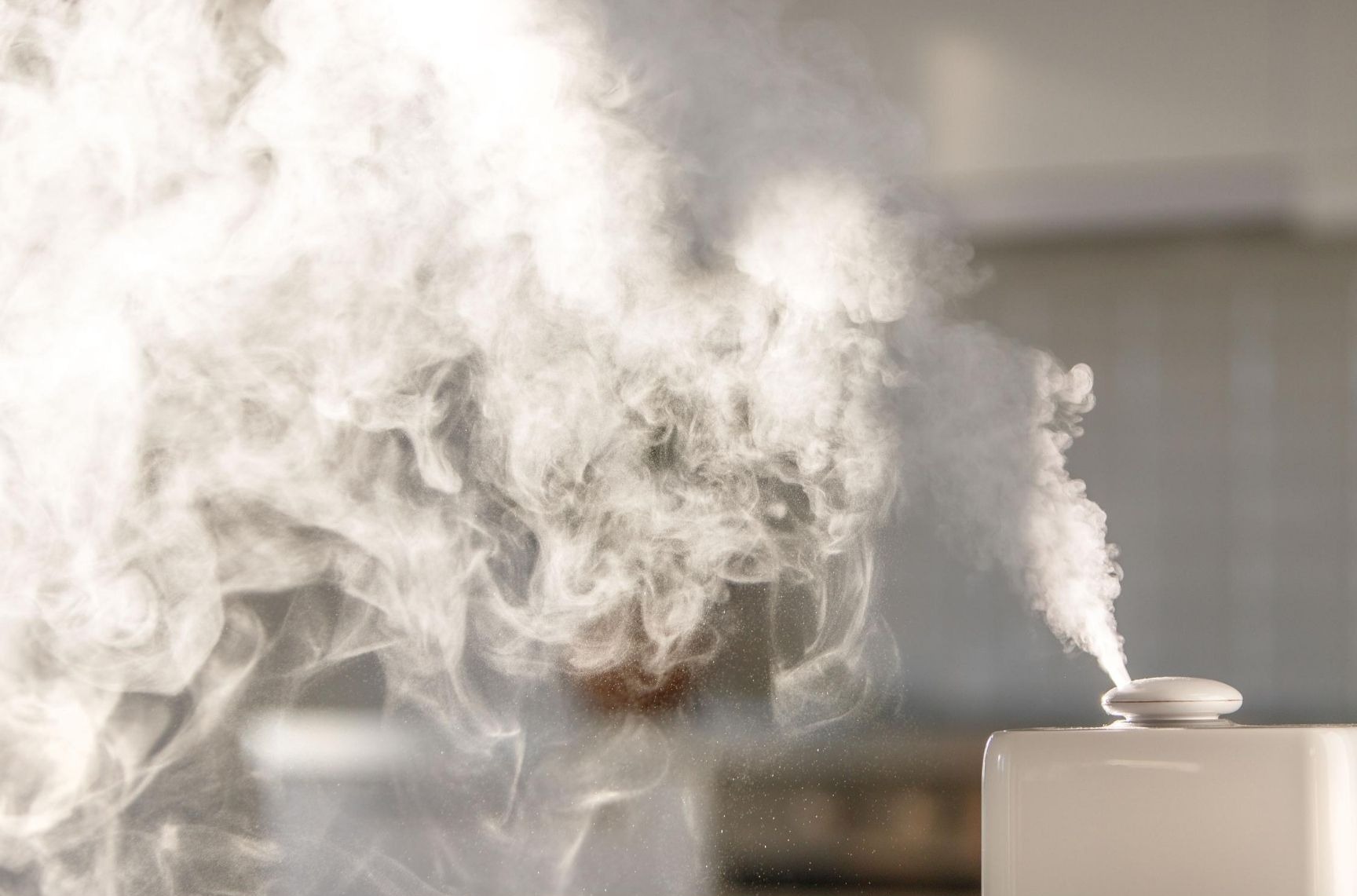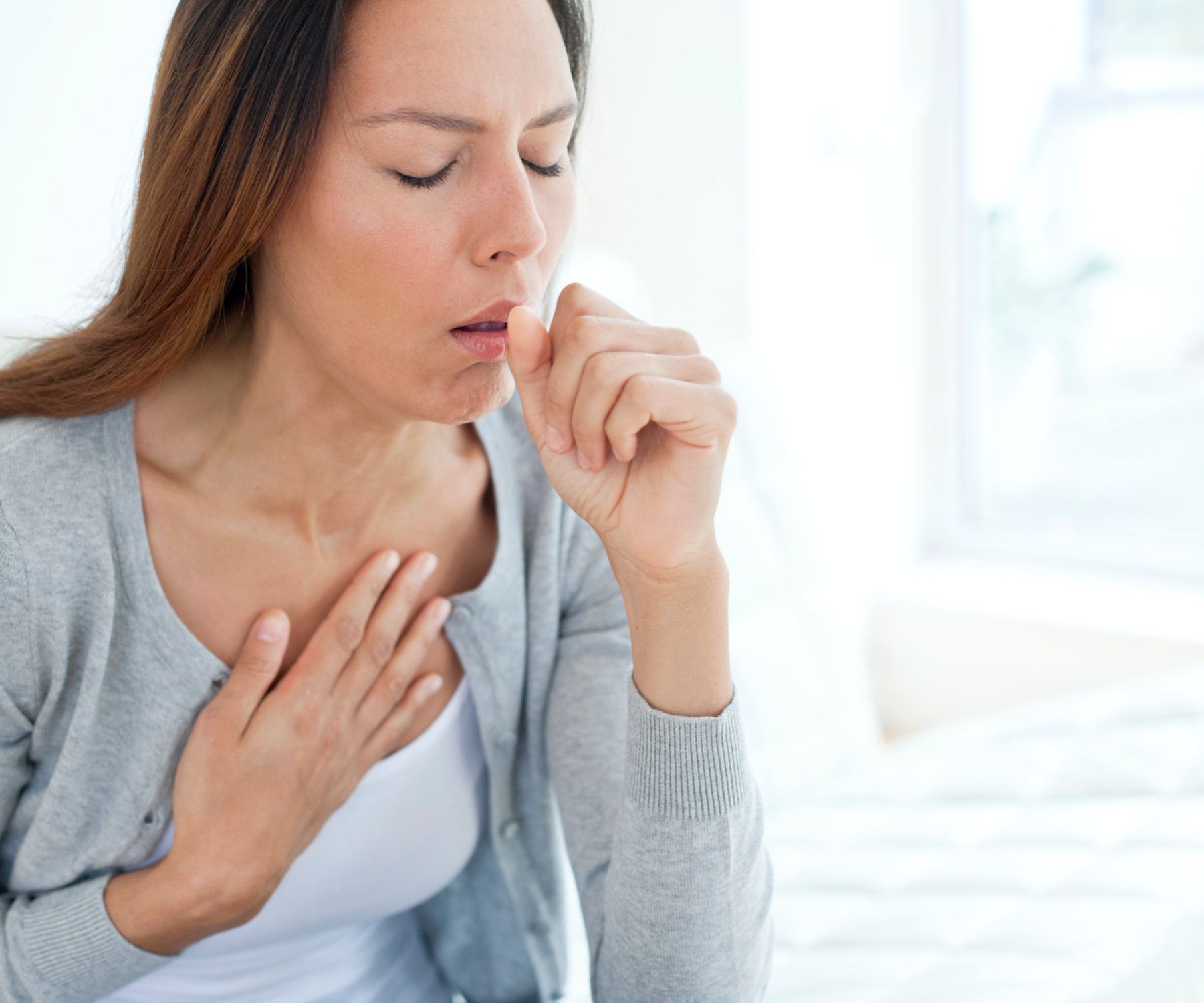Table of Contents
Can a Humidifier Make Me Cough?
Yes, a humidifier can potentially make you cough if it’s not properly maintained. A dirty humidifier can disperse bacteria and mold into the air, while excessive humidity can promote the growth of mold and dust mites, all of which can trigger coughing.
You’ve set up a humidifier in your room to combat the dry air, hoping for relief from the dryness. But instead of feeling better, you’ve started coughing more.
Could your humidifier be the culprit? Surprisingly, the answer might be yes. Here’s how and why a seemingly beneficial device can turn problematic.
The Problem with Humidifiers
1. It’s Dirty: Misting Bacteria into the Air
A humidifier can be a breeding ground for bacteria and mold if not cleaned regularly. These microorganisms can then become part of the mist the humidifier emits, leading to potential respiratory issues when inhaled. The Environmental Protection Agency (EPA) suggests regular cleaning to prevent these issues.
2. Humidity is Too High Already: Inviting Mold and Dust Mites
The ideal indoor humidity level is between 30-50%. Beyond this range, you’re inviting mold growth and dust mite infestation. Both mold spores and dust mite allergens can exacerbate respiratory conditions, leading to coughing and other symptoms.
3. Compound Problem: A Dirty Humidifier in an Already Humid Room
Using a dirty humidifier in a room that’s already too humid compounds the problem. The excess moisture supports more microbial growth in the device, which then gets dispersed into the air, doubling the risk of respiratory irritation.
Health Implications of Dirty Humidifiers:
A dirty humidifier doesn’t just slack off on the job—it can actively do harm, misting out a cocktail of bacteria and mold right into your breathing space. This can lead to everything from a nagging cough to a full-blown asthma flare-up. Keep it clean to keep your air safe.
 Solutions for a Healthier Indoor Environment
Solutions for a Healthier Indoor Environment
Before you take any steps, turn off your humidifier and check the room’s humidity level. A hygrometer can be a handy tool for this purpose. If the humidity is within the ideal range and you’re still coughing, the humidifier might need a clean-up.
Cleaning Your Humidifier
How to Clean It:
-
- Disassemble and Empty: Start by unplugging and disassembling your humidifier. Empty any standing water from the tank and base.
- Vinegar Soak: Use white vinegar to fill the tank, letting it sit for at least 30 minutes to break down mineral deposits. Meanwhile, wipe down other parts with a vinegar-dampened cloth.
- Scrub and Rinse: Scrub any visible grime with a soft brush or sponge, then rinse all parts thoroughly with clean water.
- Dry Completely: Ensure all components are completely dry before reassembling to prevent mold growth.
Types of Humidifiers and Maintenance Challenges:
| Type | Description | Maintenance Challenges |
|---|---|---|
| Ultrasonic | Uses vibrations to create mist. Quiet and efficient. | Prone to white dust from minerals in water. Needs frequent cleaning to prevent microbial growth. |
| Evaporative | Uses a fan to blow air through a wet wick/filter. | Filter needs regular replacement to prevent mold and bacteria buildup. |
| Steam Vaporizers | Boils water to produce steam. | Requires regular descaling to remove mineral buildup. Can be hot to the touch, so use with caution. |
Products That Help Keep It Clean:
- Antimicrobial Cartridges: These can be placed in the water tank to reduce microbial growth.
- Descaling and Cleaning Solutions: Specially formulated for humidifiers, these can help remove mineral buildup and sanitize the device.
Humidifiers with Self-Cleaning Features:
- Look for models with UV light sanitization or built-in hygrometers to automatically maintain optimal humidity levels, reducing the risk of microbial growth.
The Honeywell HCM-350 is a notable example of a humidifier designed with ease of maintenance in mind.
It features UV technology to kill up to 99.9% of bacteria, mold, fungus, and virus in the water, ensuring that the mist expelled into your room is clean and healthy.
This model combines the benefits of evaporative humidification with innovative technology to provide a comfortable and safe indoor environment, effectively reducing the risk of microbial growth and the need for frequent manual cleaning. Check it out here. -
Alternatives to Humidifiers:
Not keen on getting a humidifier? No problem. Houseplants can naturally add moisture to your air, and cracking open a window can help balance indoor and outdoor humidity levels. Sometimes the best solution is the simplest one. Consider adding these moisture-loving plants to your home:
- Spider Plant (Chlorophytum comosum): Easy to care for and great at improving indoor air quality.
- Peace Lily (Spathiphyllum): Not only adds moisture to the air but also blooms beautiful flowers.
- Areca Palm (Dypsis lutescens): Known for its excellent humidifying properties and tropical aesthetic.
- English Ivy (Hedera helix): A versatile plant that can be hung or placed on a ledge, adding greenery and moisture.
- Boston Fern (Nephrolepis exaltata): Classic fern that thrives in humid conditions and adds a lush look to any room.
Incorporating these plants into your living space can help maintain a comfortable humidity level naturally, adding both beauty and health benefits to your home.
Conclusion
While humidifiers can greatly improve indoor air quality, they require regular maintenance to ensure they remain beneficial to your health. By keeping your device clean and monitoring indoor humidity, you can enjoy the benefits without the unwanted side effects.
Remember, the key to benefiting from a humidifier without the downside of coughing or other respiratory issues lies in regular maintenance, monitoring humidity levels, and choosing the right humidifier for your needs.
FAQ
Q: How often should I clean my humidifier?
A: Clean your humidifier at least once a week during heavy use, and always empty and dry it between uses.
Q: Can I use tap water in my humidifier?
A: It’s best to use distilled or demineralized water to prevent mineral buildup and reduce the risk of bacteria and mold growth.
Q: What should I do if I notice mold in my humidifier?
A: Stop using the humidifier immediately. Clean it thoroughly with a disinfectant, ensuring to remove all traces of mold. Consider replacing the humidifier if the mold persists.
Q: Is it safe to add essential oils to my humidifier?
A: Only add essential oils if your humidifier is designed for it. Using oils in a regular humidifier can damage the device and pose health risks.


 Solutions for a Healthier Indoor Environment
Solutions for a Healthier Indoor Environment





